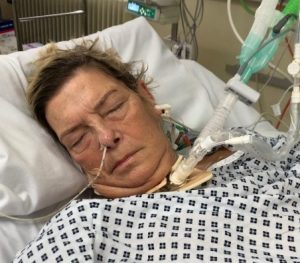Hallucinations are the perception of something that doesn’t exist. They can be auditory (heard), visual (seen), tactile (felt) or olfactory (smelled).
These hallucinations can have many causes. The most common causes are recreational drugs and dementia or delirium but they can also be caused by high fevers or certain illnesses. Some people who have survived serious, life-threatening illnesses, like septic shock, report having very vivid hallucinations while they were in the intensive care unit (ICU).
Hallucinations are often very disturbing and the memories can last, but scientists don’t understand them. A few researchers are looking at how often hallucinations occur among critically ill patients. One study looked at 289 critically ill patients who had been in an ICU for 24 hours or longer and been sedated and intubated (placed on a ventilator). The researchers found that 9.3% of the patient had nightmares and 6.6% said that they had experienced hallucinations. For some people, the hallucinations continue, even after they are no longer in the ICU environment. Another study found that after leaving the critical care area, some patients experienced, “amnesia, continued hallucinations or flashbacks, anxiety, depression, and dreams and nightmares.”
Hallucinations are also a change in mental status. This could be a sign of sepsis.
Sepsis, which was often called blood poisoning, is the body’s life-threatening response to infection. Like strokes or heart attacks, sepsis is a medical emergency that requires rapid diagnosis and treatment.
Suggested Citation:
Sepsis Alliance. Sepsis and Hallucinations. 2024. https://www.sepsis.org/sepsisand/hallucinations/
Updated January 2024.

































